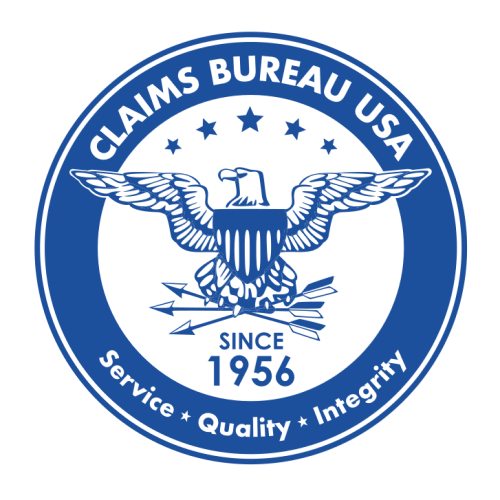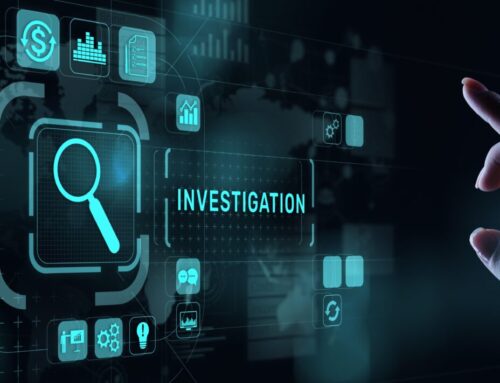Social media content and digital trails often grab headlines in legal cases, but a less flashy tool is equally powerful in court: the civil background check. In today’s courtrooms, information is as critical as legal precedent. Knowing the whole story behind every key player can mean the difference between winning and losing.
What is a civil background check?
In simple terms, it’s a comprehensive investigation into an individual’s non-criminal history that delves into civil court records, financial filings, personal background details, and online footprints to uncover information such as lawsuits, judgments, liens, bankruptcies, assets, and more.
Unlike a criminal background check, which surfaces arrests or convictions, a civil background check focuses on legal matters beyond the criminal realm. By delving deep into public records and personal history, these checks reveal valuable insights that can sway the outcome of a case. In other words, civil background checks shine light on the kinds of disputes and dealings that don’t appear on a rap sheet but matter immensely in court.
Rather than expecting attorneys or paralegals to become full-time investigators, many legal teams now turn to specialized investigative firms for this vital support. Dedicated litigation investigators bring expertise, advanced tools, and the time necessary to thoroughly investigate parties and witnesses, far beyond what a quick database search can offer.
By partnering with experienced investigators, litigators gain a fuller picture of everyone involved while ensuring no ethical or legal lines are crossed. The result is that you can uncover crucial evidence and patterns without diverting your legal team from their core work. Below, we’ll explore how civil background checks strengthen your case, from vetting a witness’s credibility to finding hidden assets, and why they have become an indispensable litigation tool.
The Role of Civil Background Checks in Litigation Support
In civil litigation, knowledge is power. Background checks in legal cases are formidable tools that investigators leverage to unearth critical information about the people involved. These comprehensive investigations dive into an individual’s history and can reveal hidden facets that directly impact your case strategy. Key figures in a lawsuit, whether they are plaintiffs, defendants, witnesses, experts, or even jurors, all bring their backgrounds and potential baggage.
A thorough civil background check helps ensure there are no surprises. It can unveil hidden motives or agendas (for example, a financial incentive to sue), assess the credibility of a witness by checking their past behavior, and flag any conflicts of interest that might undermine a case. In short, this due diligence provides attorneys with a 360-degree view of the people influencing the outcome so that you can litigate with eyes wide open.
Consider how much might be at stake. A witness or claimant with a history of fraudulent lawsuits, an expert witness with undisclosed ties to the opposing party, a juror who has broadcast strong biases on social media – any of these can derail a trial if not caught in time. Civil background checks are the litigation team’s early warning system. By scrutinizing public records and personal history, attorneys can verify that what’s being presented in court aligns with reality. These checks help confirm, for instance, that a plaintiff’s employment and education claims are truthful, or that a key witness doesn’t have a past that would crumble under cross-examination. If discrepancies exist, it’s far better to find them yourself than have opposing counsel reveal them first. In this way, background checks uphold the integrity of your case by vetting credibility, verifying claims, and exposing any red flags before they become courtroom distractions.
Just as importantly, civil background checks often uncover opportunities. The information gathered can point to hidden assets, unknown relationships, or prior incidents that materially strengthen your position. For example, a background check might reveal that the defendant quietly transferred property to a relative right after a lawsuit was filed, a sign of potential asset hiding, or that the plaintiff in a personal injury case had filed three similar lawsuits in other states over the past decade.
Armed with such knowledge, you can adjust your litigation strategy accordingly (perhaps by questioning the plaintiff’s pattern of claims or seeking a freeze on transfers of assets). In summary, civil background checks bring facts to light that sharpen your focus and allow you to litigate based on a complete factual landscape rather than assumptions.
Vetting Parties and Witnesses for Credibility and Conflicts
Every attorney knows that a case can rise or fall on the credibility of the people involved. That’s why vetting plaintiffs, defendants, and key witnesses is a priority for any serious trial team. A civil background check acts as a reputational X-ray, revealing past actions, associations, and litigation history to identify strengths or weaknesses in their character. For instance:
- Does a witness have a history of dishonesty or fraud that the opposition could use to impeach them?
- Has the plaintiff filed multiple injury claims before, suggesting a pattern?
- Does a defendant have prior civil judgments against them for similar conduct?
Thorough background research answers these questions before you put someone on the stand. In fact, conducting deep background checks on witnesses is not just a precaution; it’s often a necessity in modern civil litigation. Any vulnerabilities in a witness’ background that go unchecked could be exploited by opposing counsel, undermining your case at the worst possible moment.
A comprehensive background check of a witness or party typically covers a lot of ground. Investigators will review:
- Criminal records (to see if there’s anything in their past that needs to be disclosed or explained)
- Civil litigation history (for prior lawsuits or bankruptcies that might reveal patterns or conflicts)
- Employment and professional licenses (to verify their resume and uncover any terminations or sanctions)
- Education credentials (confirming degrees or certifications, especially for experts)
- Financial troubles like bankruptcies, liens, or big debts (which might suggest motive for fraud),
- Social media presence
Even seemingly minor details can prove useful. For example, a background check might discover a witness was fired from a past job for misconduct – information that could be used to question their honesty. Or it might reveal that a plaintiff in a contract dispute runs multiple businesses under different names, indicating undisclosed dealings. By uncovering past behaviors and associations, attorneys can assess how a person is likely to hold up under scrutiny and preempt any attempts to discredit them. If the dirt is there, it’s far better to have it come out in your own controlled manner than as a trial ambush.
Equally important, background investigations help reveal conflicts of interest or biases that could taint the case. Imagine discovering that your opponent’s star witness is a former business partner of your client, something not disclosed, but findable in corporate filings. That relationship could be used to impeach the witness’s objectivity. Or suppose a supposedly “independent” expert witness on the other side has a consulting contract with a subsidiary of your client’s company, a conflict that could get them disqualified.
Background checks shine a light on these kinds of connections. They ensure transparency and help identify situations that may compromise objectivity. In practice, this might involve cross-referencing names in court documents, business records, and news archives to see who knows who. All this information arms you to either neutralize a problematic individual or decide not to rely on them at all. In short, by vetting parties and witnesses early, you safeguard your case’s credibility and avoid costly surprises down the road.
Due Diligence on Expert Witnesses
Expert witnesses warrant special attention in any civil case. They carry immense influence with juries, and as such, they become prime targets for credibility attacks. An expert may have impeccable credentials on paper, but it’s the attorney’s job to verify every detail and uncover anything that could undermine the expert’s authority or neutrality. This is where civil background checks become your secret weapon. A thorough expert witness background check will confirm the expert’s professional qualifications (degrees, licenses, certifications) and dig for any past controversies.
- Have they ever been discredited or sanctioned in prior cases?
- Do they have published opinions or social media posts that contradict the testimony they’re giving now?
- Have they worked extensively for the opposing party or industry, indicating a possible bias?
These are critical questions that a background check can answer by reviewing court records, publications, and online footprints.
One common issue is undisclosed conflicts of interest. For example, an expert might be presented as an independent scholar, but a background search reveals they received research funding from a company affiliated with the defendant. In one recent high-profile case, a prosecution expert was found to have lied about his academic degree under oath, casting doubt on his entire testimony. The defense only discovered this through diligent background research, and it became grounds to challenge the expert’s credibility.
While that is an extreme example, it illustrates why vetting an expert’s background is non-negotiable. Even less egregious findings, say an expert who has made prior statements that favor your side’s position, can be pure gold for cross-examination or a Daubert motion.
The goal of due diligence on expert witnesses is simple: ensure the expert’s background holds no surprises that could lead to disqualification or impeachment. By doing this due diligence, you not only protect your case from the opposition’s attacks, but you might also find ammunition to challenge the opposing side’s expert. In high-stakes litigation, an effective expert witness background check can tip the scales, either by solidifying your own expert’s standing or by exposing weaknesses in the other side’s purported authority. In both scenarios, your case emerges stronger.
Researching Jurors to Ensure a Fair Trial
Jury selection has always been critical, but in the era of social media and online records, it has transformed into a data-rich exercise in risk management. A single juror with a hidden bias or undisclosed agenda can tilt an entire verdict. That’s why background checks and online research on prospective jurors have become standard practice for many trial teams.
Voir dire offers only a limited window into a juror’s mindset. A civil background check, combined with a social media sweep, can fill in the rest of the picture. These investigations delve into a juror’s public records and digital footprint to flag anything that might signal prejudice or conflict.
For example, reviewing civil records might show a juror was involved in a lawsuit like the case at hand (which could bias them). Checking property records and professional licenses can hint at their socio-economic background or affiliations. And, of course, social media searches may reveal a juror’s unfiltered opinions, hobbies, or relationships that wouldn’t come up in court.
The power of this approach is well documented. In one notable trial, investigators discovered that a potential juror had tweeted extreme opinions about the very issue being litigated – something the juror did not disclose when asked. That juror was swiftly removed for cause. More commonly, research helps attorneys decide how to use their peremptory strikes more effectively. If a juror’s Facebook profile shows strong affiliations or group memberships that suggest a leaning for or against your client, you’d want to know that. In fact, trial consultants report they can often locate social media profiles for most potential jurors, frequently revealing posts, affiliations, or even family content that sheds light on attitudes relevant to the case. When such a high percentage of jurors leave digital clues, ignoring those clues would be a missed opportunity to ensure an unbiased panel.
Beyond uncovering biases, juror background research can also help lawyers shape their questioning during the jury selection process. If you know from a juror’s online presence that they’re passionate about, say, small business rights or have expressed distrust of large corporations, you can ask targeted questions to confirm whether that sentiment might affect their judgment in your case. The goal is to seat a fair jury and avoid the nightmare of a mistrial or appeal due to juror misconduct or concealment. Ensuring that juror research is thorough but also compliant with all legal and privacy boundaries.
Ethically, attorneys must follow clear boundaries. According to ABA Formal Opinion 466, passive review of a juror’s public social media profile is ethically permissible, provided no direct contact is made. This affirms the value of using digital research during voir dire while maintaining professionalism. By improving how you select jurors, these background checks reduce the risk of hidden bias influencing the trial’s outcome and help uphold every litigant’s right to an impartial jury.
Uncovering Hidden Assets and Financial Clues
Not all litigation intelligence is about personal credibility; often it’s about following the money. Civil cases, from contract disputes to personal injury and divorce, frequently hinge on financial stakes. Here, asset checks and financial background checks become invaluable. A civil background check can reveal if an individual or business has significant undisclosed assets or, conversely, significant liens and debts. This information can profoundly affect strategy: it might determine the feasibility of recovering damages or shed light on someone’s true motivations.
For instance, if a defendant claims they’re insolvent, an asset search could uncover real estate holdings, corporate affiliations, or luxury vehicles in their name that tell a different story. Or if you’ve won a judgment, locating hidden bank accounts and properties can be the key to collecting on that victory.
Private investigators skilled in asset searches use a variety of open-source and legal methods to trace wealth and ownership. They will check public filings like property deeds, business incorporation records, UCC (Uniform Commercial Code) filings, bankruptcy records, and court judgments to map out a subject’s financial footprint.
It’s not uncommon to find that assets are stashed under shell companies, relatives’ names, or trusts, but these, too, can often be detected with careful research. In some instances, physical surveillance can even play a role. For example, observing a person’s day-to-day activities might reveal an expensive car they regularly drive or a secondary residence they visit, which official records didn’t immediately show.
The value of exposing hidden assets goes beyond just sizing up a defendant’s ability to pay. It can also provide leverage in settlement talks. If you quietly discover that a company has a lot more wealth than they let on, you won’t be fooled by low-ball settlement offers based on supposed poverty. Conversely, if an asset search shows the opponent truly has limited resources, you might adjust your approach, perhaps pushing for insurance coverage or settling for policy limits rather than pursuing a pyrrhic legal victory.
Many attorneys conduct asset investigations before filing a lawsuit or early in the process to determine if a case is worth the effort. After all, winning a million-dollar judgment means little if the defendant has hidden all their money or declared bankruptcy. By using asset background checks as part of your litigation toolkit, you ensure that any potential award is more than just paper. In essence, finding the money is as important as winning the case, and a skilled investigator can help you do both.
Turning Intelligence into Litigation Strategy
Civil background checks yield a wealth of data, and the final step is integrating those insights into a cohesive trial strategy. The best litigators treat investigative findings as an extension of their legal analysis. For example, if a background check uncovered that a plaintiff has a history of exaggerating injuries (say, social media posts of them playing sports despite claims of disability), you can tailor your cross-examination and evidence to highlight those inconsistencies.
If you learned through a background report that your key witness has a minor conviction from long ago, you might choose to disclose it proactively during direct examination (to take the sting out) or prepare a rehabilitation strategy, rather than leaving it for opposing counsel to weaponize. The goal is to leverage strengths and exploit weaknesses identified by background checks. Knowing personal details and past behaviors of individuals allows you to frame your narrative in a way that jurors find credible and compelling.
Moreover, the intelligence gathered often influences big-picture decisions. For example, you may decide whether to proceed to trial or settle, which points of contention to emphasize, and how to allocate resources for further investigation. If a deep dive into the opposing party’s background reveals serious skeletons in their closet, you might press harder in litigation, knowing they’ll prefer to settle rather than have certain facts exposed in court. On the flip side, if your own client’s background checks uncover issues, you might advise settling before trial to avoid risking credibility in front of a jury.
Case strategy is fluid, and new information is fuel for that fluidity. Investigators’ findings might even lead you to discover new witnesses or evidence. For instance, a background check might list an individual’s former business partner, someone you weren’t aware of, who could have insight into a fraudulent transaction at issue. By following that lead (perhaps via court records research or a witness interview), you could strengthen your case further. In this way, a civil background check isn’t a one-time report you file; it’s an evolving asset that continually feeds into your litigation decisions.
In addition to surfacing new witnesses, we frequently assist in locating known ones, pinpointing their current residences, confirming contact details, and supporting next steps like conducting interviews or arranging other services. These witness location assignments are a critical part of ensuring you’re ready as litigation approaches.
Finally, consider the confidence factor. When you know you’ve left no stone unturned about the people in your case, you can enter the courtroom with greater confidence. You can deliver opening statements and examinations without the nagging worry that a bombshell revelation about a witness will drop unexpectedly.
This peace of mind allows you to focus on persuasive advocacy, not last-minute damage control. In summation, civil background checks fortify your litigation strategy at every phase: pre-trial, trial, and even post-trial enforcement. They ensure that your moves are based on facts, not promises or appearances. In the high-stakes chess match of civil litigation, having more intelligence on board lets you plan several moves ahead, and that is a decisive advantage.
Conclusion
Civil background checks have moved from the periphery to center stage in litigation strategy. In an era where virtually every adult leaves behind a trail of records and digital breadcrumbs, attorneys can no longer rely solely on surface-level information. Thorough background checks of litigants, witnesses, experts, and jurors provide a deeper level of insight that can make your case more bulletproof. By vetting credibility, verifying claims, uncovering conflicts of interest, finding hidden assets, and informing trial tactics, investigators strengthen your position at the negotiation table and in the courtroom. These checks are essentially about trust but verify, taking nothing for granted about a person’s history or honesty, and thereby preventing unpleasant surprises.
Of course, with great investigative power comes the responsibility to use it correctly. Ethical and legal guidelines govern how far one can dig, and reputable firms like Claims Bureau USA ensure that every background check respects privacy laws and admissibility rules. When done properly, civil background checks are a win-win: they uncover the truth that supports a fair outcome while also protecting against fraud and deceit in the justice system. For legal professionals, leveraging this tool has become part of the new normal in case preparation.





